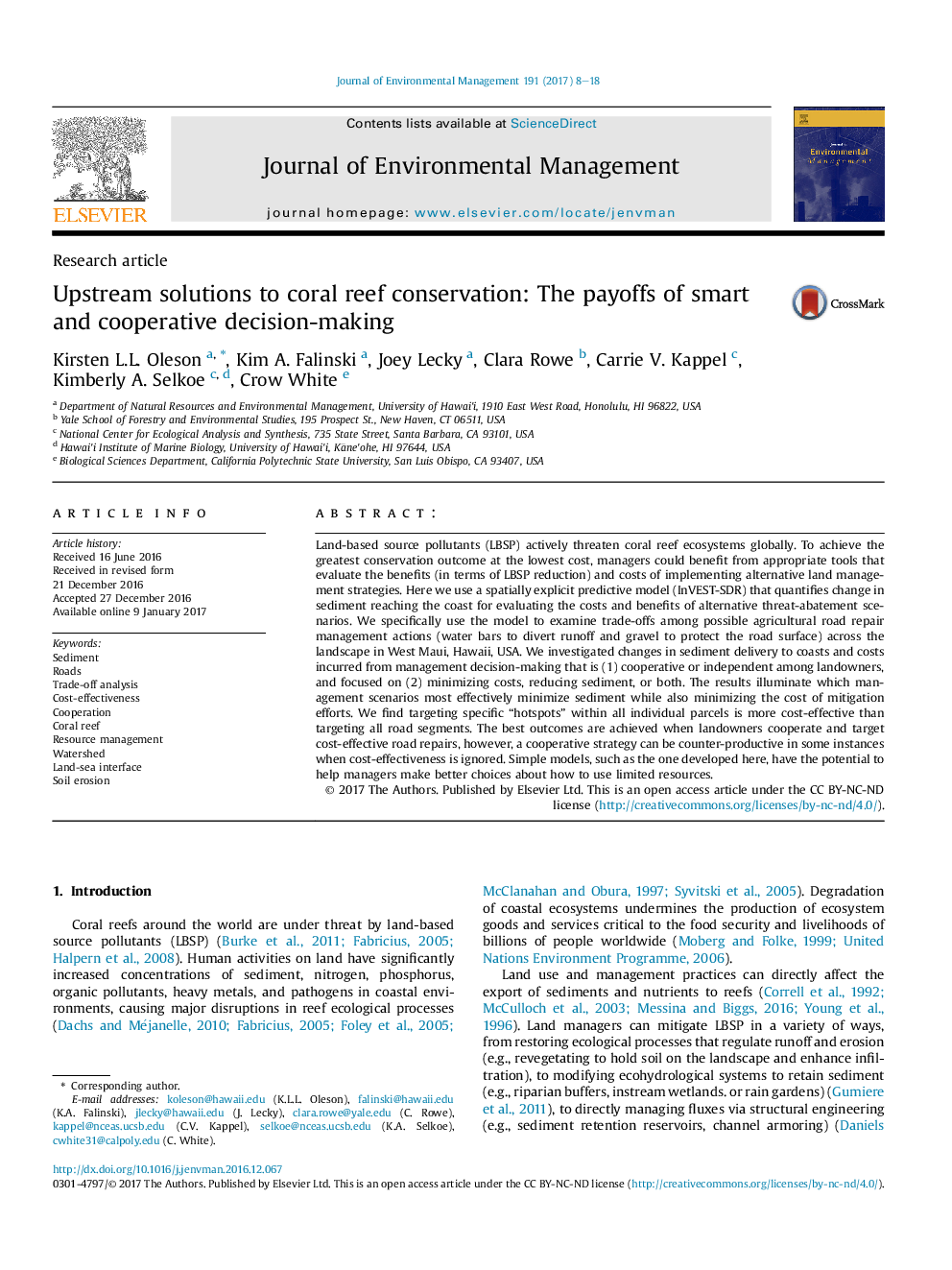| کد مقاله | کد نشریه | سال انتشار | مقاله انگلیسی | نسخه تمام متن |
|---|---|---|---|---|
| 5116768 | 1485224 | 2017 | 11 صفحه PDF | دانلود رایگان |
- We modeled sediment from agricultural roads reaching coral reefs in Maui, Hawai'i.
- Models to select priority road segments to fix generate improved cost-effectiveness.
- Roads that have more sediment reduction per dollar spent should be targeted.
- Best outcomes are when multiple landowners cooperate to fix cost-effective roads.
- Cooperation toward objectives misaligned with policy goal can be counter-productive.
:Land-based source pollutants (LBSP) actively threaten coral reef ecosystems globally. To achieve the greatest conservation outcome at the lowest cost, managers could benefit from appropriate tools that evaluate the benefits (in terms of LBSP reduction) and costs of implementing alternative land management strategies. Here we use a spatially explicit predictive model (InVEST-SDR) that quantifies change in sediment reaching the coast for evaluating the costs and benefits of alternative threat-abatement scenarios. We specifically use the model to examine trade-offs among possible agricultural road repair management actions (water bars to divert runoff and gravel to protect the road surface) across the landscape in West Maui, Hawaii, USA. We investigated changes in sediment delivery to coasts and costs incurred from management decision-making that is (1) cooperative or independent among landowners, and focused on (2) minimizing costs, reducing sediment, or both. The results illuminate which management scenarios most effectively minimize sediment while also minimizing the cost of mitigation efforts. We find targeting specific “hotspots” within all individual parcels is more cost-effective than targeting all road segments. The best outcomes are achieved when landowners cooperate and target cost-effective road repairs, however, a cooperative strategy can be counter-productive in some instances when cost-effectiveness is ignored. Simple models, such as the one developed here, have the potential to help managers make better choices about how to use limited resources.
677
Journal: Journal of Environmental Management - Volume 191, 15 April 2017, Pages 8-18
